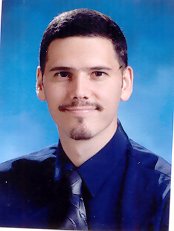Seven Critical Questions for Christian Teaching
WHY? CONCEPT
Why do we teach? What are our goals-primary and secondary? How do we conceive our task? To what do we turn as sources for framing the task? How does my specific subject area (eg: literature, law, etc.) relate to the larger goals of Christian formation?
WHAT? CONTENT
What must be teach? What is the essential content of our teaching ministry if we are to be faithful and effective in our task? How is the approach to a given subject area at a Christian university the same as that at a secular university? How is it different?
WHO? CONTACT
Who is charged with the responsibility of teaching? How can we best organize those who are engaged in the teaching ministry of the Church? What manner of persons must teachers be in order to be faithful and effective in their task? How can professors and other university staff collaborate with one another toward a common goal and vision?
WHOM? CONGRUENCE
Whom do we teach? What are the socio-cultural realities of our learners and how must these affect the teaching task? As we consider the goals of Christian formation, what are some of the cultural obstacles we face-eg. the idols of the culture, the isms of the culture, the evil inclinations of the culture? How can we be sensitive to cultural diversity in the university community and in the classroom?
WHEN? CONTINUITY
When should we teach what? What are the developmental realities of our learners (both in terms of natural and spiritual development) and how must these affect the teaching task? How can we build upon previous learning and prepare for subsequent learning? How are developmental concerns being accounted for in the curriculum as a whole and in particular classes? Again, how can we be sensitive to diversity in this regard?
HOW? CONFLUENCE
How must be teach in order to engage whole persons-heads, hearts and hands-in Christian formation? How can we challenge the community toward transformation in all facets of its life? How does our teaching embrace the various domains of learning-perception, cognition, affection, behavior?
WHERE? CONTEXTS
Where should the teaching occur? What are the environments in which the community and individual students are best taught and formed? Is there variety in the learning environments? What are the limitations of strictly formal education?
(Sermon notes reproduced from Gary Parrett's lectures)
Why do we teach? What are our goals-primary and secondary? How do we conceive our task? To what do we turn as sources for framing the task? How does my specific subject area (eg: literature, law, etc.) relate to the larger goals of Christian formation?
WHAT? CONTENT
What must be teach? What is the essential content of our teaching ministry if we are to be faithful and effective in our task? How is the approach to a given subject area at a Christian university the same as that at a secular university? How is it different?
WHO? CONTACT
Who is charged with the responsibility of teaching? How can we best organize those who are engaged in the teaching ministry of the Church? What manner of persons must teachers be in order to be faithful and effective in their task? How can professors and other university staff collaborate with one another toward a common goal and vision?
WHOM? CONGRUENCE
Whom do we teach? What are the socio-cultural realities of our learners and how must these affect the teaching task? As we consider the goals of Christian formation, what are some of the cultural obstacles we face-eg. the idols of the culture, the isms of the culture, the evil inclinations of the culture? How can we be sensitive to cultural diversity in the university community and in the classroom?
WHEN? CONTINUITY
When should we teach what? What are the developmental realities of our learners (both in terms of natural and spiritual development) and how must these affect the teaching task? How can we build upon previous learning and prepare for subsequent learning? How are developmental concerns being accounted for in the curriculum as a whole and in particular classes? Again, how can we be sensitive to diversity in this regard?
HOW? CONFLUENCE
How must be teach in order to engage whole persons-heads, hearts and hands-in Christian formation? How can we challenge the community toward transformation in all facets of its life? How does our teaching embrace the various domains of learning-perception, cognition, affection, behavior?
WHERE? CONTEXTS
Where should the teaching occur? What are the environments in which the community and individual students are best taught and formed? Is there variety in the learning environments? What are the limitations of strictly formal education?
(Sermon notes reproduced from Gary Parrett's lectures)


0 Comments:
Post a Comment
<< Home